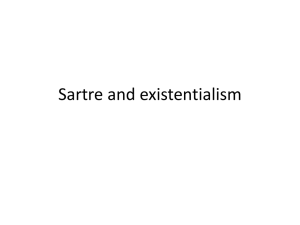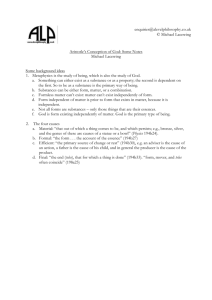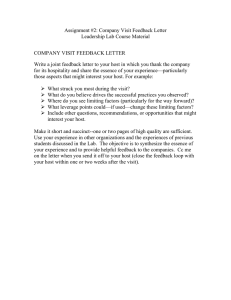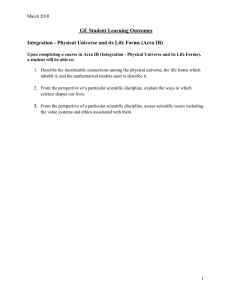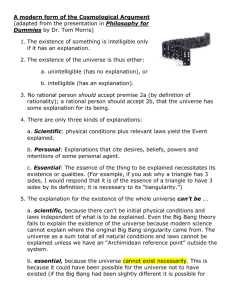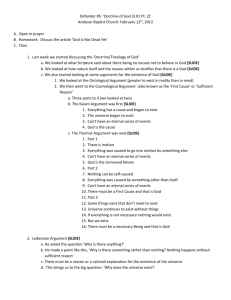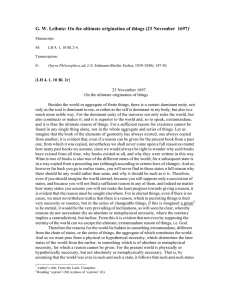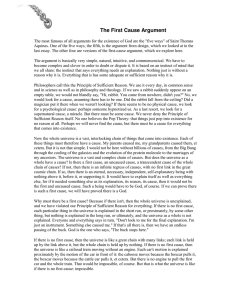Summa Theologica
advertisement
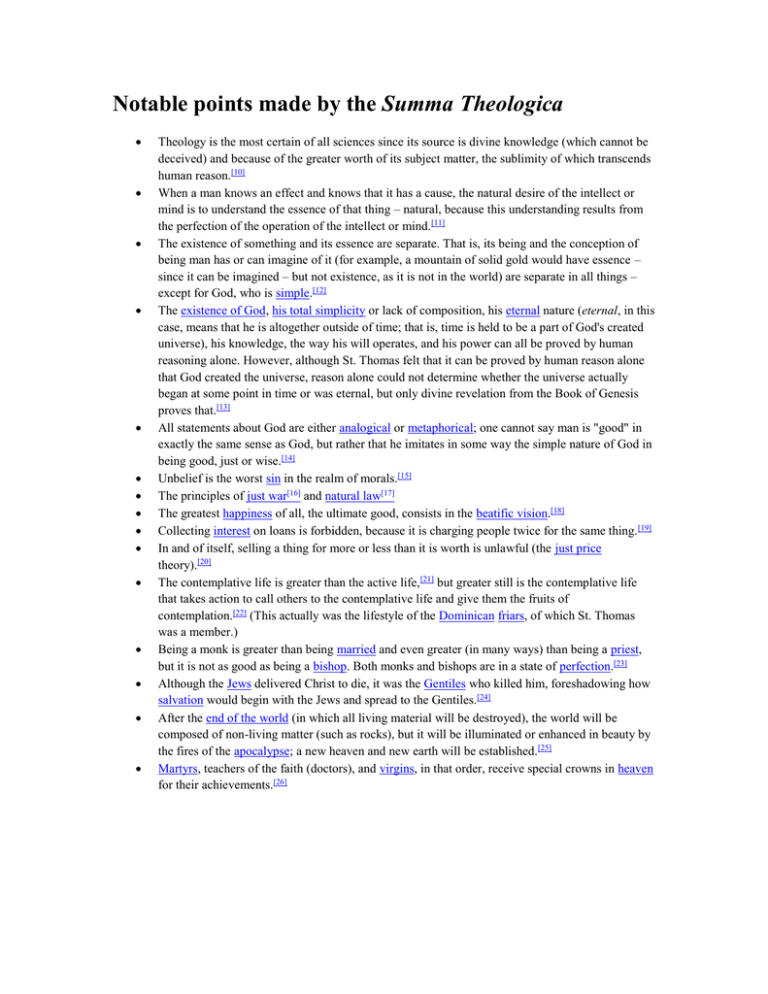
Notable points made by the Summa Theologica Theology is the most certain of all sciences since its source is divine knowledge (which cannot be deceived) and because of the greater worth of its subject matter, the sublimity of which transcends human reason.[10] When a man knows an effect and knows that it has a cause, the natural desire of the intellect or mind is to understand the essence of that thing – natural, because this understanding results from the perfection of the operation of the intellect or mind. [11] The existence of something and its essence are separate. That is, its being and the conception of being man has or can imagine of it (for example, a mountain of solid gold would have essence – since it can be imagined – but not existence, as it is not in the world) are separate in all things – except for God, who is simple.[12] The existence of God, his total simplicity or lack of composition, his eternal nature (eternal, in this case, means that he is altogether outside of time; that is, time is held to be a part of God's created universe), his knowledge, the way his will operates, and his power can all be proved by human reasoning alone. However, although St. Thomas felt that it can be proved by human reason alone that God created the universe, reason alone could not determine whether the universe actually began at some point in time or was eternal, but only divine revelation from the Book of Genesis proves that.[13] All statements about God are either analogical or metaphorical; one cannot say man is "good" in exactly the same sense as God, but rather that he imitates in some way the simple nature of God in being good, just or wise.[14] Unbelief is the worst sin in the realm of morals.[15] The principles of just war[16] and natural law[17] The greatest happiness of all, the ultimate good, consists in the beatific vision.[18] Collecting interest on loans is forbidden, because it is charging people twice for the same thing. [19] In and of itself, selling a thing for more or less than it is worth is unlawful (the just price theory).[20] The contemplative life is greater than the active life,[21] but greater still is the contemplative life that takes action to call others to the contemplative life and give them the fruits of contemplation.[22] (This actually was the lifestyle of the Dominican friars, of which St. Thomas was a member.) Being a monk is greater than being married and even greater (in many ways) than being a priest, but it is not as good as being a bishop. Both monks and bishops are in a state of perfection.[23] Although the Jews delivered Christ to die, it was the Gentiles who killed him, foreshadowing how salvation would begin with the Jews and spread to the Gentiles.[24] After the end of the world (in which all living material will be destroyed), the world will be composed of non-living matter (such as rocks), but it will be illuminated or enhanced in beauty by the fires of the apocalypse; a new heaven and new earth will be established.[25] Martyrs, teachers of the faith (doctors), and virgins, in that order, receive special crowns in heaven for their achievements.[26]

